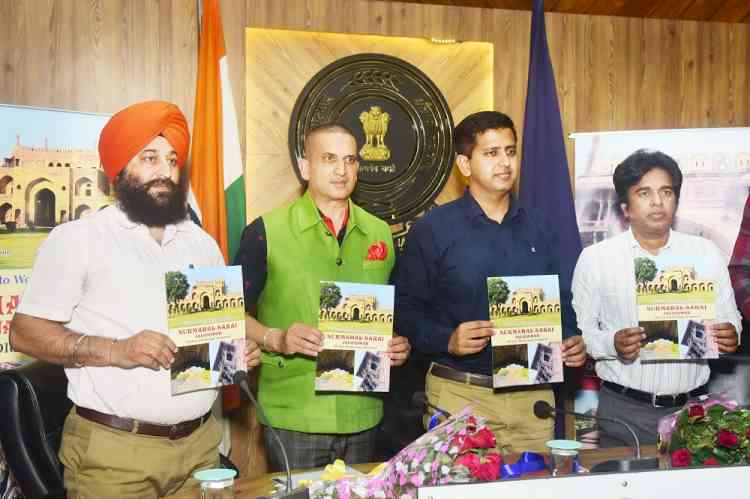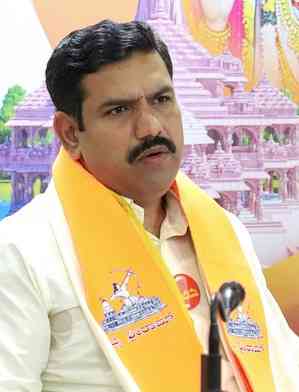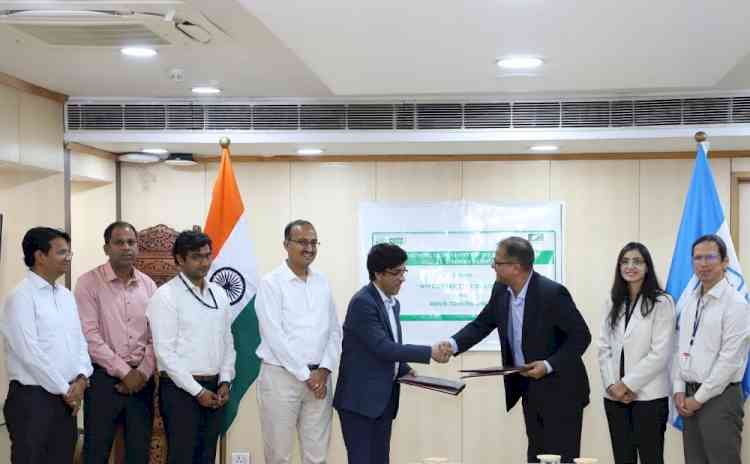IIT Roorkee Hosts a Meeting of Academic and Research Institutions along with user organisations Working in The Field of Water

Roorkee, February 25, 2019: There are a large number of research and academic institutions which work on water-related subjects and have excellent human resources, technical know-how and facilities. Despite rich water resources in several states of the country, such as Uttarakhand and Uttar Pradesh, a large number of regions of the country face problems related to drinking water, irrigation, floods, droughts, erosion, siltation, sanitation, hydropower etc. With a view to improve the application of scientific and technical knowhow, so as to benefit our society in this critical area, a one day brainstorming meeting at IIT Roorkee was held on Feb 20, 2019 at IIT Roorkee. The meeting identified issues, problems and projects in which our complementary strengths can be leveraged so that research, studies, designs etc. which possibly cannot be addressed alone, and may have a bigger impact shall be carried out.
Senior officials from Irrigation Department of Uttarakhand and UP, UJVNL and THDC, Jal Nigam and state disaster management centre deliberated on the problems related to water sector whereas the experts from IIT Roorkee, NIH, HNB University Srinagar, GB Pant Institute of Himalayan Environment, Wadia Institute proposed the outlines of the studies. It is expected that some of the projects shall be taken up in cooperation with several institutions with funding from state and Centre.
“We are happy that several institutions and government organizations came forward to participate in this event. We are confident that this will lead to good solutions and better management of the water resources of the country at large, and not only of the region around us“ Said Prof. Ajit K Chaturvedi, Director, IIT Roorkee. Appreciating the initiative taken by IIT Roorkee Prof SK Jain, Director, NIH and Sh AK Dinkar, Engineer in Chief , Uttarakhand state irrigation department were confident that some of the problems may be addressed with such joint efforts on long term basis.
Prof Arun Kumar, Convener, water group at IIT Roorkee thanks all the participating institutions for taking part in this initiative.
The other academic institutions invited to participate in this meeting were Wadia Institute of Himalayan Geology, ICAR-Indian Institute of Soil and Water Conservation, Irrigation Research Institute, National Institute of Hydrology, Indian Institute of Remote Sensing, Forest Research Institute, Indian Council of Forestry Research and Education, Govind Ballabh Pant University of Agriculture & Technology, HNB Garhwal University, Kumaon University, GB Pant Institute of Environment MoEF&CC, State Remote Sensing Centres, and state Irrigation Department, Peyjal, Rural Water supply and Sanitation, ground water, Forest, Power, Jal Nigam, Tourism, Industrial and Bridge Corporations, State Pollution Board, State Disaster Management Agency, Watershed directorates of UP and Uttarakhand to share their perspectives and think way forward to deal with this issue.
Suggestive Studies based on deliberation made during the meeting as:
River Basin/Irrigation group for Assessment of surface water and subsurface water including Glacier, Irrigation Efficiency as a pilot project in Uttarakhand and Uttar Pradesh, Sedimentation in rivers and Reservoirs, River training & Morphology etc.
Watershed/Rural Supply group for demystifying the science of spring systems and conversion of knowledge for sustainable decision support system and developing the capacity building of stakeholders towards the sustainable springshed management.
UJVNL/THDC group for Redressal of silt related issues in power projects, development of inflow forecasting system, modeling of flood flows of Alaknanda river better cooperation/ tie-up with various power developers, sharing of data collected by different agencies of the state. (THDC, SDMA, IMD), GHG emission assessment and mitigation studies in reservoirs, Silt removal from dams, Emergency Action plan studies for dams.

 cityairnews
cityairnews 
















